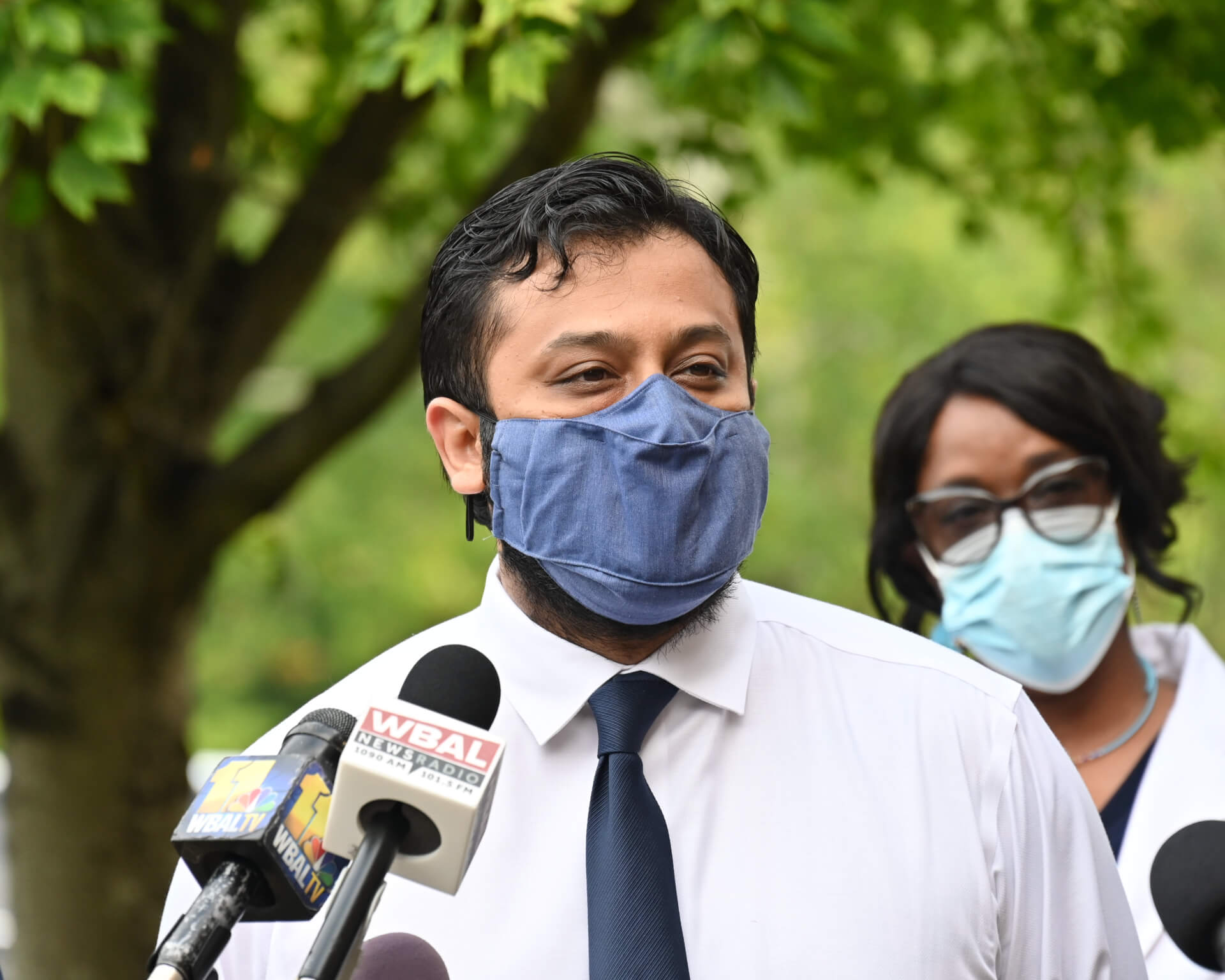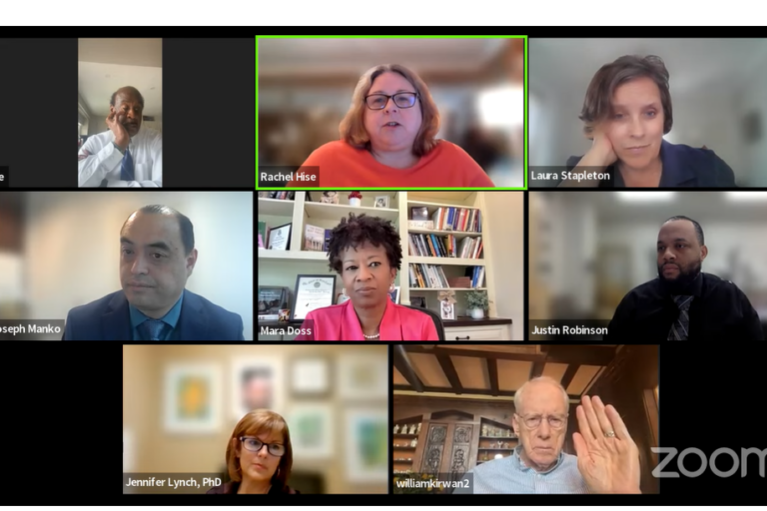
By Kalman R. Hettleman
The writer was a member of the Maryland Commission on Innovation and Excellence in Education — the Kirwan Commission, a former Baltimore City school board member, a former deputy mayor of Baltimore and a former Maryland secretary of Human Resources.
Mohammed Choudhury began his tenure as state superintendent of schools in July with much good will.
Given the widespread criticism heaped on his predecessor, he had nowhere to go but up.
But much more was expected. In announcing his appointment, the State Board of Education cited his prior record of “transformative policies and groundbreaking practices that have shattered expectations and raised the bar for staff and students.”
And so far, lo and behold, he seems to be living up to his advance billing. The overwhelming sentiment is that he is a smart and high-powered change agent.
Among those giving him high marks are General Assembly education heavyweights. Senate Education, Health and Environmental Affairs Committee Chair Paul G. Pinsky (D-Prince George’s) is “very impressed … he seems a shot in the arm with clear and firm beliefs.” To House Majority Leader Eric Luedtke (D-Montgomery), a longtime leader on school issues, “he’s great so far … a breath of fresh air.”
Advocates, including me, are also enthusiastic. Karleen Spitulnik, a leader in the parent group Decoding Dyslexia of Maryland, is “excited,” citing his excellent presentations to the state board, grasp of data and focus on equity. Leslie Margolis, chair of the statewide coalition of special education advocates, says her members are “hopeful and cautiously optimistic.”
Perhaps most significant are the reviews of his performance by MSDE staff. Those I’ve spoken to don’t want to be quoted by name but praise him for doing his homework, digging into data, being inclusive, encouraging openness, and wanting to shake things up. They’re also, as one put it, “scared as hell” of losing their jobs or not meeting his strict demands. One described being in a meeting with him in which he expressed dissatisfaction with the staff work; it was a completely new and intimidating experience to be challenged in that way, but he was sharp and right, the staff person said.
Obviously, it’s only been 100 days or so. And notwithstanding the fame of President Franklin D. Roosevelt’s speedy birth of the New Deal, the first 100 days of a new administration can be an unreliable marker or even worse. Expecting too much too fast can lead to poor planning and unrealistic promises.
Still, the first impressions of Choudhury provide important clues and raise intriguing questions about his future chances for success.
One question, given his confident style, is whether he will he be too brash or impatient in his relationships not just with staff but with Annapolis leadership, teacher unions and, arguably most important, local school systems. Will he be savvy as well as smart in negotiating new and higher expectations? A national publication, in a profile of his work in San Antonio, noted that his “approach to changing the status quo has at times led to decisions that rankled parents, politicians, and teachers unions.” Of course, that can be a good thing: the status quo almost never gets upended without resistance.
Closely related is the question of whether he will have the staying power to see his reforms effectively implemented. He comes across to all as a leader on the move, with the talent and ambition to climb fast and far. He is attuned to the national scene. Yet, five to ten years is the minimum amount of time that it would take, under the best of circumstances, to get the job done. The Maryland Blueprint, which he ardently applauds, will not be fully phased-in until 2034 at the earliest.
So will the go-go guy stay-stay long enough? And defy precedent? In Maryland, the last four (including two interim) superintendents have served an average of less than four years. Nationally the average tenure is about three years; not a single one (including 12 elected superintendents) has been on the job more than eight years.
Choudhury doesn’t shy away from the longevity factor. He has stated publicly that he intends to stay for 10 years. Let’s hope he does — if his performance is as good as his potential.
Another basic question applies to the proverbial devil in his detailed plans. We don’t know his plans yet (which makes sense because he is taking proper time to make the rounds and solicit input). But when unveiled, will the plans translate lofty goals into sound management systems and tactical priorities?
A concern that sometimes crops up is whether he will be too focused on equity and school integration (racial and socioeconomic) to the relative exclusion of other policies and practices, especially classroom instruction. His parents emigrated from Bangladesh to Los Angeles where they still own a restaurant, and he grew up, as he once noted, as a “minority among minorities.” His record and fervent rhetoric extolling school integration have been his signature attractions. All of which is praiseworthy, but it remains to be seen how he will balance and prioritize the full scope of necessary reforms.
As previously written on this site, I think his first and foremost task is to strengthen the internal management capacity of MSDE. We don’t need new laws and innovations nearly as much as we need MSDE to skillfully direct and guide local schools to implement the laws and programs we already have. Here too, there are definite signs that he gets it. He has brought in from the outside a bright and experienced leadership team. Job openings are sprouting with high-level duties that call for management expertise in areas like planning and evaluation. He talks in terms of management processes and systemic change.
Happily, the first 100 days justify high hopes for the success of his superintendency. Let’s hope the next 3,000 days (over about 10 years) turn out as well.





 Creative Commons Attribution
Creative Commons Attribution